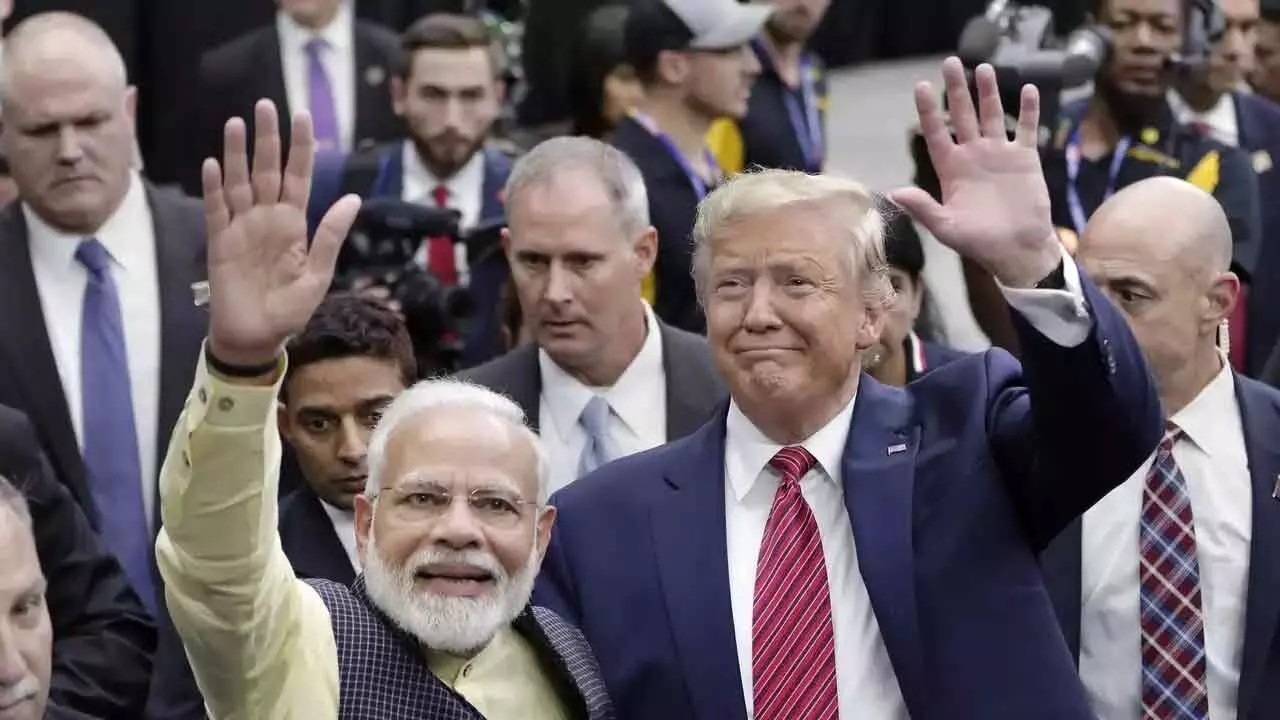India Must Cash In On Trump’s Anti-China Policies To Boost Growth
India Must Cash In On Trump’s Anti-China Policies To Boost Growth

The government is on a new-found high following over 19 per cent of exports in October. Further, merchandise exports, rising at the fastest pace in 28 months, saw a growth rate of 17.3 per cent year-on-year to reach $39.2 billion. Commerce Secretary Sunil Barthwal was confident that this year’s exports performance will be better than that of last year. If the trend continues, India will be able to export goods and services worth $800 billion this financial year. Meanwhile, although the October numbers are heartening, celebrations would be premature. To begin with, there was still a trade deficit of $10.12 billion last month, though it was down from $15.85 billion. It is important to note that the deficit was solely on account of merchandise imports, which were $66.34 billion, up from $63.86 billion in October 2023. Services exports ($34.02) were more than double of imports ($17 billion). Trade figures of the first seven months of this fiscal give a more accurate picture. The overall trade deficit went up to $63.24 billion in April-October against $60.02 billion in the corresponding period last fiscal. Again, the deficit was because of the huge gap between merchandise exports and imports. In April-October this year, merchandise exports were $252.28 billion, whereas imports stood at $416.93 billion. Against this backdrop, it is not surprising that Donald Trump’s re-election as the US President raised concerns.
Unfortunately, his comeback is seen mainly from one perspective—the tariffs that he would impose on imports. Chief of Federation of Indian Export Organisations (FIEO) Ajay Sahai expected Trump “to push for more balanced trade, though trade disputes might arise around tariffs.” Global Trade Research Initiative (GTRI) founder Ajay Srivastava maintains “Trump’s ‘America First’ agenda would likely push for protective measures, such as reciprocal tariffs on Indian goods, potentially adding barriers for key Indian exports like automobiles, wines, textiles and pharmaceuticals. These increases could make Indian products less competitive in the US, impacting revenue in these sectors.” Srivastava added that Trump's anti-China stance could create new opportunities for Indian exporters and New Delhi must try to capitalise on these opportunities. There is no doubt that the Trump administration would be very tough on Beijing, across sectors. It is through “friendshoring” that the US is “strengthening integration with our many trusted trading partners—including India,” Treasury Secretary Janet Yellen had said in May. Hence, Indian policy and decision makers should focus on friend-shoring.
That Trump intensely dislikes Beijing’s hegemonistic designs is well known. This was one fact that earlier his policies aligned closely with India’s interests. His emphasis on countering Chinese economic and military expansion resonates with India’s concerns about regional stability and border security. This has already had a positive impact on bilateral defence, intelligence, and cybersecurity ties. In his second term, one can reasonably hope for strengthening of these ties. As Barthwal puts it, “We are integrating our value chains with the US, and the two economies through various agreements, including IPEF [Indo-Pacific Economic Framework for Prosperity], other agreements and bilateral mechanisms. We are able to sustain the growth tempo in the level of integration with the US. Washington has also grown its exports to India.” The government must ensure that the integration is quick and to India’s advantage.

